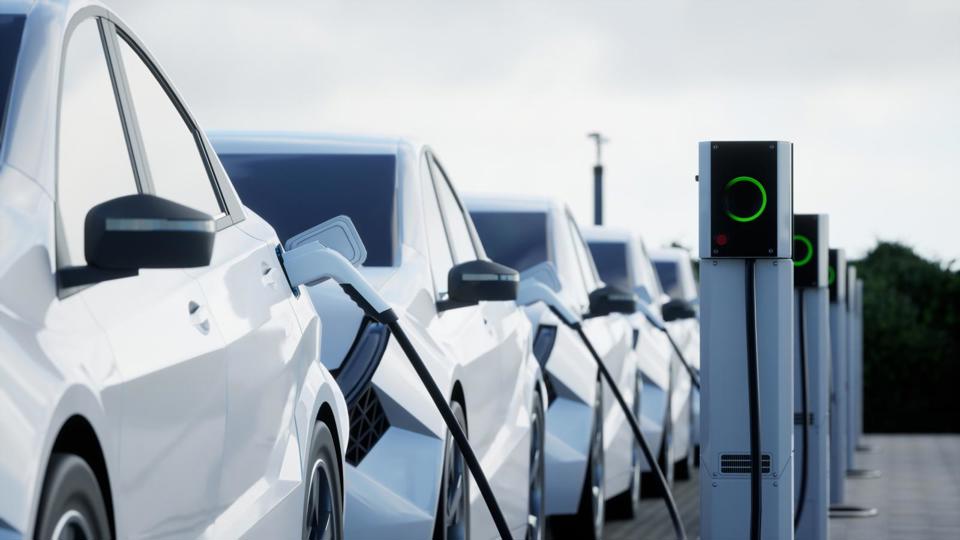Vehicle manufacturers are predicted to miss zero emission vehicle (ZEV) mandate new car sales targets by over 345,000 units by 2028, according to new data.
Cox Automotive and digital garage Regit have made the forecast based on their combined data analysis, as well as a survey of 2,700 motorists.
The research has highlighted some of the main indicators that are still holding back electric vehicle (EV) adoption in the UK.
Cox Automotive’s new car registration forecasts predict that, in line with the current rate of adoption, 36% of new car registrations will be EVs in just three year's time.
This falls short of the current ZEV mandate’s target of 52% by 2028, equating to 346,349 cars.
Government incentives to boost EV demand
The new data reveals UK motorists are lacking confidence about the long-term implications of EV ownership; with 58% of drivers keen for manufacturers to share more information regarding comparative cost analysis.
Almost half (46%) also said that longer warranties or service packages from manufacturers or dealerships would help address their concerns.
Over two thirds (69%) of drivers said they wouldn’t be willing to pay more for an EV over a petrol or diesel alternative, yet, on average, EV vehicles cost 12% more.
Managing an EV’s battery also proves to be a cause for concern. Again, over two thirds (68%) of drivers feel that vehicle manufacturers and car dealerships should improve their information on battery health, lifespan, and recycling.
To tackle this, 86% of drivers want to see greater incentives from the Government to drive adoption.
When asked what incentives they would like to see, the top three were all centred on bringing down the cost of EV ownership:
- Financial subsidies or grants to reduce the cost of the vehicle (62%)
- Reduced cost of charging away from home (56%)
- Free/discounted home chargers (52%)
Negative perception for UK charging infrastructure progress

The UK’s charging infrastructure has a major image problem, as 82% of drivers think it is poor.
EV drivers also reported issues finding charging points (28%) and one in four found charging costs to be too high.
Philip Nothard, insight director at Cox Automotive, said: “Creating deadlines may convey a sense of urgency to the general public about the need for electrification, however that alone is not enough to drive adoption.
“The Government needs to address this growing consumer confidence crisis with tangible incentives to help bring the price of EVs down and improve the nation’s charging infrastructure, while manufacturers and dealerships need to help combat misinformation about making the move to electric.
“Without these measures, we will simply set deadlines that we can’t hope to achieve.”
UK dealers urging for ZEV targets to be lowered
Meanwhile, a snapshot survey of 58 UK used car dealerships, suggests that automotive retailers would like the ZEV targets to be lowered, despite the fact the Government has already ruled this out as an option.
The Department for Transport (DfT) launched a consultation about the ZEV mandate in December, which closes on February 18. It is expected to make changes to the way car manufacturers are fined for missing market share targets for new EVs, rather than lowering the targets.
More than half of used car dealers (51%) believe the Government should lower ZEV targets.
Nearly half (47%) said hybrids should be allowed to stay on sale until 2035 and 43% that interest free loans for electric car buyers should be introduced.
However, only 12% believe the ZEV mandate should be scrapped altogether.
Other suggestions include allowing UK-made EVs to be included in production totals even if they are exported (34%), new manufacturer targets that combine electric car and van sales (28%) and looser rules that enable manufacturers to trade credits (16%).
Paul Burgess, Startline chief executive, said: “The main change dealers really want from the consultation – a general relaxation of the ZEV Mandate targets – is the one thing that the Government has already ruled out, so disappointment seems inevitable.
“However, other ideas that have been floated in the media and elsewhere suggest that there could be some potential common ground, such as the introduction of interest free loans for used electric cars and lowering of the £15,000 fine for each vehicle that misses the target.
“The danger is that the Government ends up introducing a range of measures that move the dial on used electric car adoption only marginally when it seems that the motor industry is looking for a more radical revision.”
Burgess added: “In a way, this is the most interesting finding from this research.
“It suggests that dealers recognise the need for the ZEV mandate and electrification in general. Relatively few think that the whole strategy should be abandoned.”























Login to comment
Comments
No comments have been made yet.